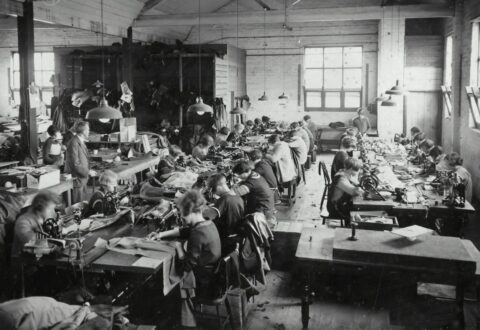DISPUTES REGARDING NON-PAYMENT OF DUES CANNOT BE REFERRED TO ARBITRATION AS IT IS SIMPLY A CASE OF RECOVERY: PUNJAB AND HARYANA HC

The High Court of Punjab and Haryana at Chandigarh in a recent judgment1 held that when the dispute between the parties relates to a case of simpliciter non-payment of dues it cannot be said to be a dispute ‘under’, ‘in connection with’, or even ‘with regard to’ the contract and therefore cannot be a case for reference to Arbitration.
Facts
The respondent is a proprietorship firm and is in business of construction of roads and buildings. The petitioner vide work order dated 14th April, 2014 assigned the respondent road work which was completed by the respondent. Despite various reminders by the respondent the payment was not made to him resulting in, the respondent filing a Civil Suit for recovery of dues as per the Invoice as well as for interest.
Petitioner filed an application before the Civil Judge under Section 8 of the Arbitration and Conciliation Act, 1996 (“Arbitration Act”) praying for dismissal of civil suit on the ground that the same is not maintainable in view of the clause 12 of the work order which provides for arbitration, in case any dispute arises between the parties.
The Civil Judge dismissed the Section 8 application of the petitioner. Accordingly, the petitioner had approached the Punjab and Haryana High Court by filing a revision petition against the order dated 5th February, 2019.
Contentions
The learned counsel for the petitioners contended that the civil suit filed by the respondent is not maintainable as the agreement between the parties contains an Arbitration Clause and therefore any disputes between the parties should be resolved by referring to arbitration as per Clause 12 of the Agreement/Work Order.
He further contended that the dispute for non-payment of bills will have to be referred to arbitration and on the basis of merit as language of Section 8 of the Arbitration Act is pre-emptory.
Learned counsel arguing on behalf of the respondent submitted that there is no dispute that the respondent had completed their job as per the terms mentioned in the work order. Petitioners did not raise any objections on the work done by the respondent nor replied to any of the respondent’s reminders for payment. He submitted that petitioners even stopped receiving the phone calls and the respondent had no other recourse but to file the civil suit for recovery of dues.
Observations of the Court
The court observed that the petitioners have not disputed their liability. A perusal of the Arbitration Clause (12) as provided in the Agreement/ Work Order, clearly states that “if the parties fail to settle the difference or dispute arising out of or in connection with this work order/contract/purchase order (including interpretation of the terms thereof), the same shall be referred to arbitration.”
The court further observed that in the present case the dispute has not arisen out of or in connection with the work order/contract/purchase order. The case simply reflects non-payment of dues arising out of a work contract and therefore, the arbitration clause cannot be applicable to this case.
By relying on the case of UOI v Birla Cotton Spinning and Weaving Ltd. [Reported in (1996 AIR (SC) 688)] the court held the non-payment of price cannot be said to be a dispute under or arising out of a contract.
Regarding Section 8 of the Arbitration Act, the court stated that “A perusal thereof shows that arbitration clause comes into operation ‘in a matter which is the subject of an Arbitration Agreement’.”
The court further observed that in the present case the dispute cannot be covered under the Arbitration Agreement as it does not relate to execution of the work or its completion, or even of the contract or projects related thereto. “As noticed above the present dispute relates to/ is a case of non-payment of dues simpliciter. The present dispute between the parties cannot be said to be a dispute ‘under’, ‘in connection with’, or even ‘with regard to’ the contract.”
Concluding, the court further stated that as the liability is admitted, respondent has legally filed the present suit for recovery.
Accordingly, the court dismissed the revision petition.
1 M/s Simplex Infrastructure Ltd. & Anr. versus M/s J.P. Singla Engineers and Contractor
By entering the email address you agree to our Privacy Policy.



